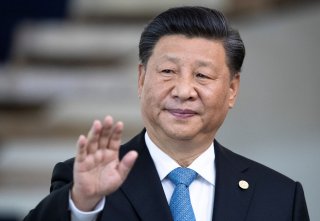by Morgan Lorraine Vina

This month, China will hold the rotating presidency of the UN Security Council. Despite the presidency being a largely ceremonial role, Beijing will use the presidency as an opportunity to shape the world order according to its narrative; a narrative that denigrates democracy and shields dictators from accountability. The Biden administration shouldn’t let Beijing get away with it.
During the month security council members serve as president, they shape the council’s official agenda, also known as the Programme of Work, to reflect their national priorities. When the United States took the gavel in April 2017, U.S. Permanent Representative to the United Nations Nikki Haley added the first thematic debate on human rights to the agenda. Despite human rights being intrinsically linked to peace and security, China and Russia initially objected to the addition, arguing that a discussion on human rights was not germane to the Council’s work.
Similarly, when China last held the presidency in March 2020 as the world struggled to combat the coronavirus pandemic (believed to have originated in Wuhan), Beijing’s ambassador to the UN Zhang Jun refused to add a meeting to the Council’s agenda, saying, “We don’t have any plans to discuss the coronavirus before the security council. It is really beyond the scope of the Security Council. It is a public health issue.” Instead, China focused on countering terrorism and extremism in Africa, peacekeeping, and the role of multilateralism in settling disputes: all areas China in which has increased its resources and influence.
The Programme of Work for China’s presidency this year will not look much different than the last. China will hold a briefing on “upholding multilateralism and the United-Nations centered international system” as well as an open debate on “improving the safety and security of peacekeepers,” and an open debate on addressing the “root causes of conflict while promoting post-pandemic recovery in Africa.” No doubt, China will seek to win plaudits for peddling its dubious vaccine to much of the African continent as a “global public good.” Beijing’s choice of signature events will contribute to its efforts to undermine U.S. global leadership and democracy.
The United Nations, and specifically, the security council presents an easy target for Beijing to maximize influence. As one of the permanent five members of the council, China, along with the United States, United Kingdom, France, and Russia, has the authority to veto Security Council resolutions. While the United States leads the council in the number of times it has used its veto power, China has been exercising this privilege more frequently. Since 2011, China has vetoed nine resolutions, including eight on Syria and one on Venezuela.
Often joining Russia in its use of the veto, China has repeatedly protected the regimes of Bashar al-Assad and Nicolas Maduro regime from accountability for the starvation and murder of the Syrian and Venezuelan people. The justification for refusing to hold dictators accountable: non-interference in the internal affairs of other nations. Despite the security council’s primary responsibility to maintain international peace and security, China, with the help of Russia, protects regimes that reflect the Chinese Communist Party’s authoritarian values from accountability.
China also uses the council as a political tool in its attempts to undermine democracy and the liberal values that the United States and its like-minded partners and allies embrace. Triggered by U.S. support for the democratic movement in Hong Kong and sanctions against China for the ongoing genocide of its Uyghur population, China’s Foreign Affairs Minister told the U.S. delegation and the press corps at the U.S-China Summit in March, “we believe that it is important for the United States to change its own image and to stop advancing its own democracy in the rest of the world.” Afterward, China, in partnership with Russia, voiced support for a P-5 UN Security Council summit amid what they called “increasing global political turbulence” and “the destructive nature of U.S. intentions.”
The Biden administration should not take lightly China’s use of the Security Council as a propaganda platform. As China takes the gavel, the United States should denounce any attempt by Beijing to use the body as a platform to manipulate the agenda to shield dictators and undermine democracy. The United States should also look to its other P-5 members, specifically the United Kingdom and France, as well as like-minded, elected Council members, such as Norway and Estonia, to call out China’s grandstanding.
The security council is a soft target for Beijing. As a deliberative body, it can be easily hijacked by its members and used as a political platform. The United States and other P-5 members should protect the integrity of the council and expose China’s deceptions.
Morgan Lorraine Viña previously served as chief of staff to U.S. Permanent Representative to the United Nations Nikki R. Haley and is an adjunct fellow at the Foundation for Defense of Democracies. Follow her on Twitter @morganlroach.
No comments:
Post a Comment